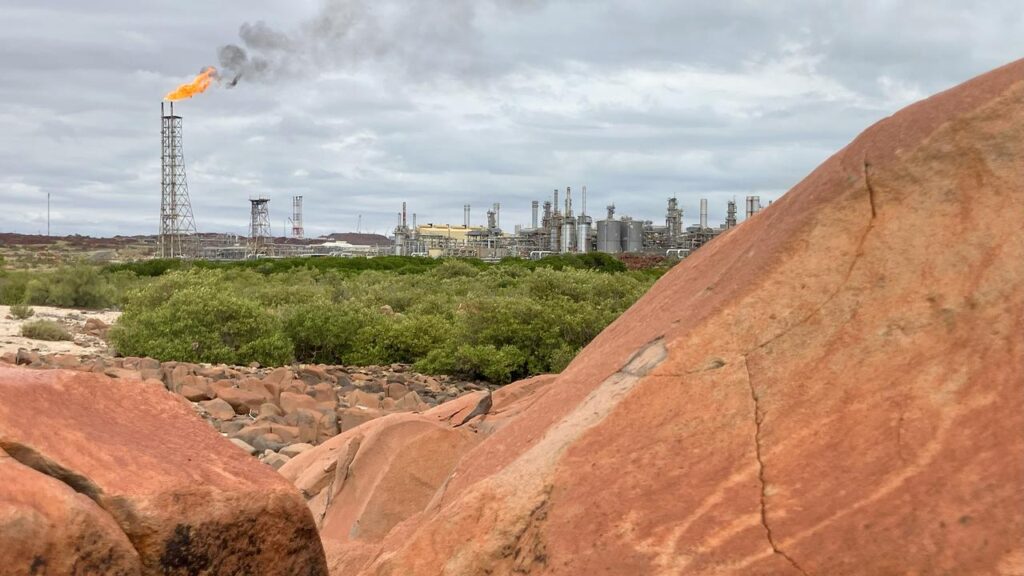Bid for World Heritage rock art listing ramps up
Kat Wong |

An ancient First Nations rock art collection could become a World Heritage-listed site as the federal government ramps up lobbying efforts.
Environment Minister Murray Watt will travel to the United Nations Educational, Scientific and Cultural Organisation (UNESCO) headquarters in France to try get the Murujuga rock art landscape in Western Australia listed as a World Heritage site.
The site had previously been put forward to UNESCO but Australia’s application was referred back in May, with recommendations state and federal governments address concerns nearby acid emissions, including those from Woodside’s Burrup gas hub, were degrading the art.
But Senator Watt, who said Australia had consistently shown international leadership in promoting First Nations people and combating climate change, wants to update the committee on conservation at Murujuga.

“All Australians can be immensely proud of our heritage sites, both ancient and modern,” he said.
“Not only is Australia home to many cultures from across the world but also the world’s oldest continuous living culture.”
Senator Watt will also offer other updates on other World Heritage-listed sites including the Greater Blue Mountains, the Gondwana Rainforests and the Great Barrier Reef, which has been a subject of concern in recent years due to several waves of coral bleaching amid rising ocean temperatures.
The announcement of Senator Watt’s trip coincides with protests set to take place outside Woodside’s Perth office on Wednesday, where climate activists will oppose the pending North West Shelf extension decision at the Burrup peninsula and the proposed Browse gas field at Scott Reef.

The Murujuga area contains the world’s largest, densest and most diverse collection of rock art engravings, known as petroglyphs, and some are estimated to be more than 50,000 years old.
Friends of Australian Rock Art in June challenged the Western Australian government’s environmental approval to extend the life of Woodside’s North West Shelf project.
They argued the state did not consider the climate change impact the project would increate, and the affect it would have on Indigenous rock art.
AAP has reached out to Woodside for comment.
The company’s website has said it seeks to avoid impacts on cultural heritage or minimise and mitigate the impacts.
AAP


